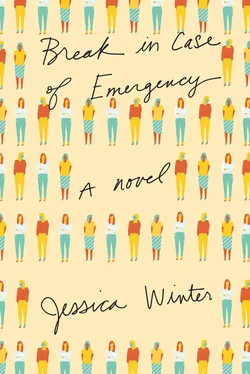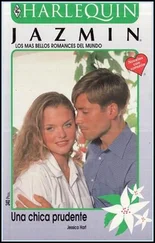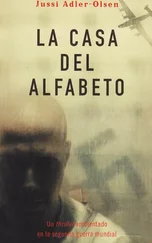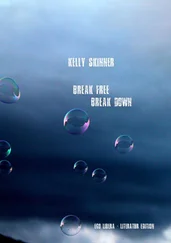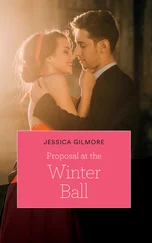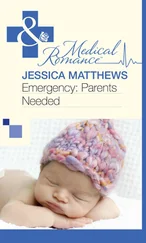“Pam, no, please, I can explain—”
“I don’t need you to explain. I’m leaving now. I can find my own way out.”
Jen turned and watched helplessly as Pam walked across the office floor and vanished through the glass doors to the elevator bank. Jen locked eyes with Jules the intern, who had swiveled around in her chair and was scrunching her face into a shoulder-squeeze of sympathy. Jen did not react, and turned and took her seat again. She folded her hands on her desk. She was comfortably seated in a still pocket of time, no turbulence, 70 degrees Fahrenheit, pH balance of seven. This pocket of time would expire in ten to fifteen minutes. The pocket of time walled itself off from dread about the moment of its expiration, the moment that the pocket of time would run out of oxygen; her amygdala would remain sound asleep until then, until the alarm rang. Jen could peer wonderingly at her steady hands with dry eyes and no apprehension. Even the pain in her lower abdomen, which had been building all afternoon, receded a bit. She heard Daisy reinstall herself in her cubicle.
whatDaisyknew: Didn’t mean to eavesdrop but is everything ok
jenski1848: Is there someone who could send me a link to the interview Donna did with Pam, the last-minute addition?
whatDaisyknew: Sure, I’ve already seen it, it sort of looks like a hostage video shot in a realtor’s office in Palm Springs
—
As the raw video began, Pam was rubbing her teeth with one finger, unaccustomed as she was to lipstick. The makeup artist had already performed a rhinoplasty of contouring. The hairdresser had straightened Pam’s hair, which Jen knew must have taken at least an hour or more. Pam was wearing a ruffled tangerine blouse that Jen had never seen before — Jen assumed it was borrowed from Leora’s ad-hoc clothing-storage space, which Daisy had stumbled upon one day while searching for padded envelopes and which Petra had then started using instead of the handicapped stall to pump breast milk. The ruffled tangerine blouse was further embellished by a chunky, brassy necklace that Jen recognized from Leora’s Opening Statement!™ jewelry line. Off-camera, Donna was asking Pam if she was ready to begin. Jen could hear Donna taking off her bracelets.
All right, good, let’s start. So, Pam. It’s been nearly a year and a half now. Can you tell us what happened?
Sure — and thanks for having me here today, Donna, and thanks to, um, the foundation. So, let’s see, I was riding my bicycle to a gallery on a Saturday afternoon. I was making a turn at an intersection, and, as far as I can piece it together, a van was speeding to make the light, hit me from behind, and threw me from the bike. I’ll probably never know exactly what happened, because the van drove away and the cops never really followed up on it.
What were your injuries?
Well, my left leg was shattered. Just wrecked. I had a compound fracture of the femur and a smashed tibia, and my ankle was beyond — I mean, the pedal had slashed clean through it. It was pretty gross. I also dislocated my shoulder and cracked a couple of ribs — but on my right side. So my injuries were ambidextrous, you could say.
Aha, so you had found a new equilibrium!
Ha, yes, you could say that. But it was my leg that was the big problem.
What do you remember of the first days after the accident?
I remember coming in and out of this bluey consciousness — everything seemed underwater and tinted blue, with tinges of red at the edges, like, um, like the curling of fingers, or seaweed. And I remember pain, just excruciating pain, like every cell in my body was being crushed over and over again. The pain was so bad I was surprised I was alive. It was so bad I was sort of in awe of it, you know? Like I could behold it from a slight distance, and I guess I got that distance because of the medication they were giving me. If I had been inside that pain, I would have gone crazy.
But you made it, Pam. You made it. Tell us about your road to recovery.
Well, I don’t know how much detail you want me to go into, but they basically had to reassemble my leg, which took a lot of time and operations and then recovery time between the operations. That was, in a way, the most dispiriting part — every time I’d have recovered enough from an operation to start to sort of feel like myself again, another operation would come around the bend. And then I basically had to learn to walk again, with a leg that felt uncomfortably new and unfamiliar, but also old and over it — over life, you know? My leg was depressed, which was depressing to me. My leg and I had to get to know each other again. And my two different legs had to learn to get along.
And now?
Things are pretty good. My leg gives me trouble when it’s cold, or when it rains. This past winter was hard at times, going up stairs and stuff. And I have a lot of scars on my leg, but I kind of like them now. They’ve healed and smoothed over, and they’re sort of cool-looking. They’re a story.
Battle scars.
Something like that. I don’t really think of it as a battle. I’m sad that I can’t really run like I used to anymore. Maybe someday. I could ride a bike, but I don’t want to.
A fear you need to conquer.
Yeah, maybe — well, I don’t know about that. I don’t know that I need to conquer it, actually. I mean, why would anyone want to get back on a bike after what happened?
What did you learn about yourself during the months you spent recovering?
Well, it’s interesting. One thing I didn’t know is that the femur is the only bone in the human thigh. Isn’t that weird to think about? We’ve got fourteen bones in our face, twenty-nine bones in our skull, and just that one lonely bone accounting for about a quarter of our height. So, anyway, with a femoral fracture, what happens is—
Pam, I’m going to stop you there — I meant more on a personal level, a spiritual level. What did you learn about yourself during this time?
Oh, okay. Let’s see. I don’t really know.
We’ve talked a lot about the physical. What about the metaphysical, the spiritual?
I don’t — I don’t believe in God, so—
We don’t necessarily have to be talking about a god. Let me put it another way: When this accident happened, what did you think the universe was trying to tell you?
I don’t know. I don’t — it’s sort of hard for me to think in those terms. Sorry, I know you need stuff for the interview. Um — huh, I don’t know. It was just the thing that happened. I don’t think it was, like, a sign. Or like a divine message. Is that what you mean?
Maybe you were the message, and this event was the messenger.
Yeah, I don’t know.
Because you do have a message, don’t you?
Yes, I do. First of all, I want people in their twenties and thirties who don’t have health insurance to make sure they have it. The only reason I had health insurance when this happened was because I was at a party one time and I mentioned I didn’t have health insurance — it was almost like a brag, like a bit of bravado. Bravada? And this woman I’d just met turned to me and told me about her brother, who was diagnosed with cancer at the age of twenty-six. If he hadn’t had health insurance, she said, he would have bankrupted their entire family and their lives never would have been the same. She told me that story and I got health insurance the next day. It wasn’t great insurance and it was really expensive and it had a high deductible, but it was something. This accident happened just over a year after that. I want to sort of be like that woman’s brother for people who think they can squeeze by without insurance.
Читать дальше
